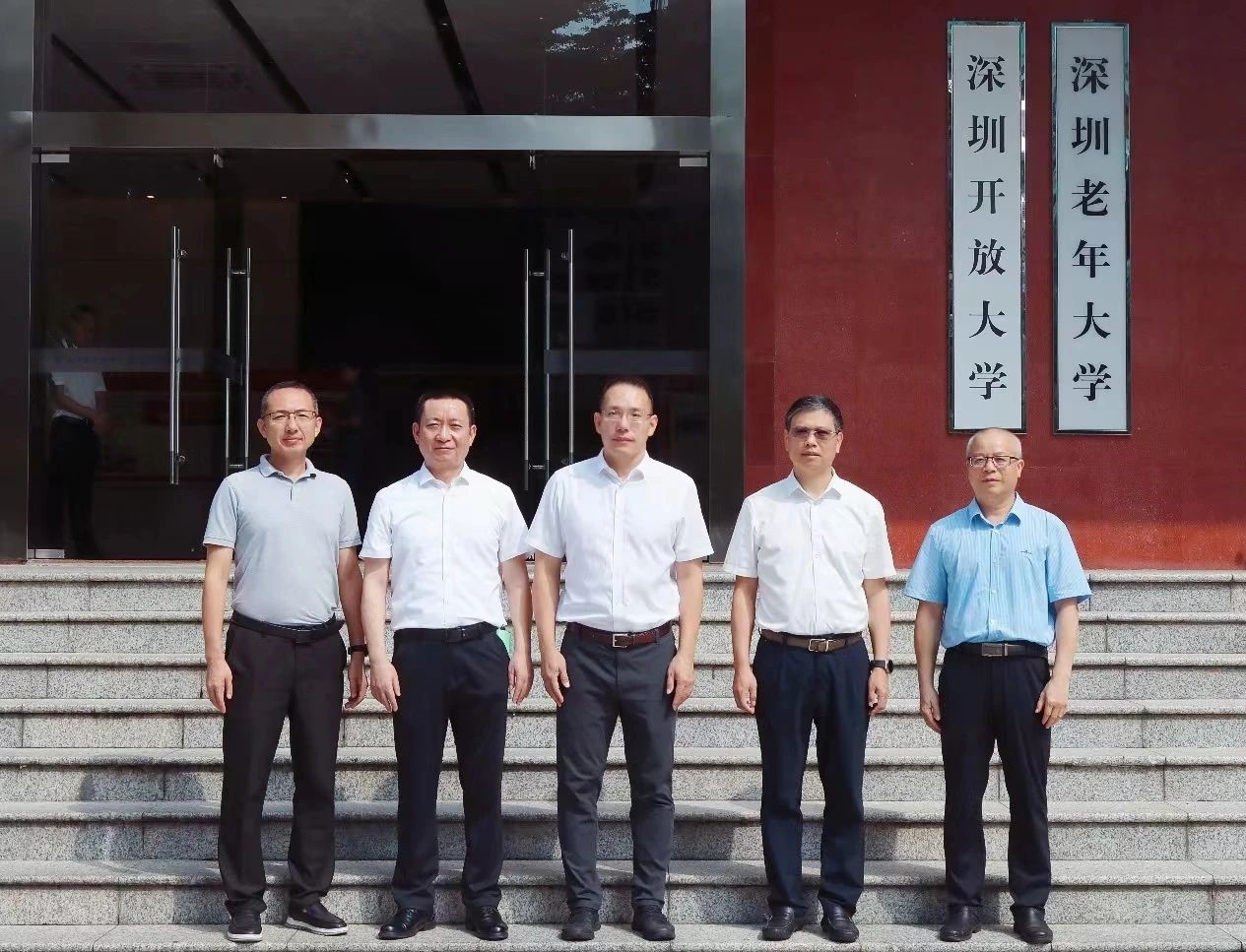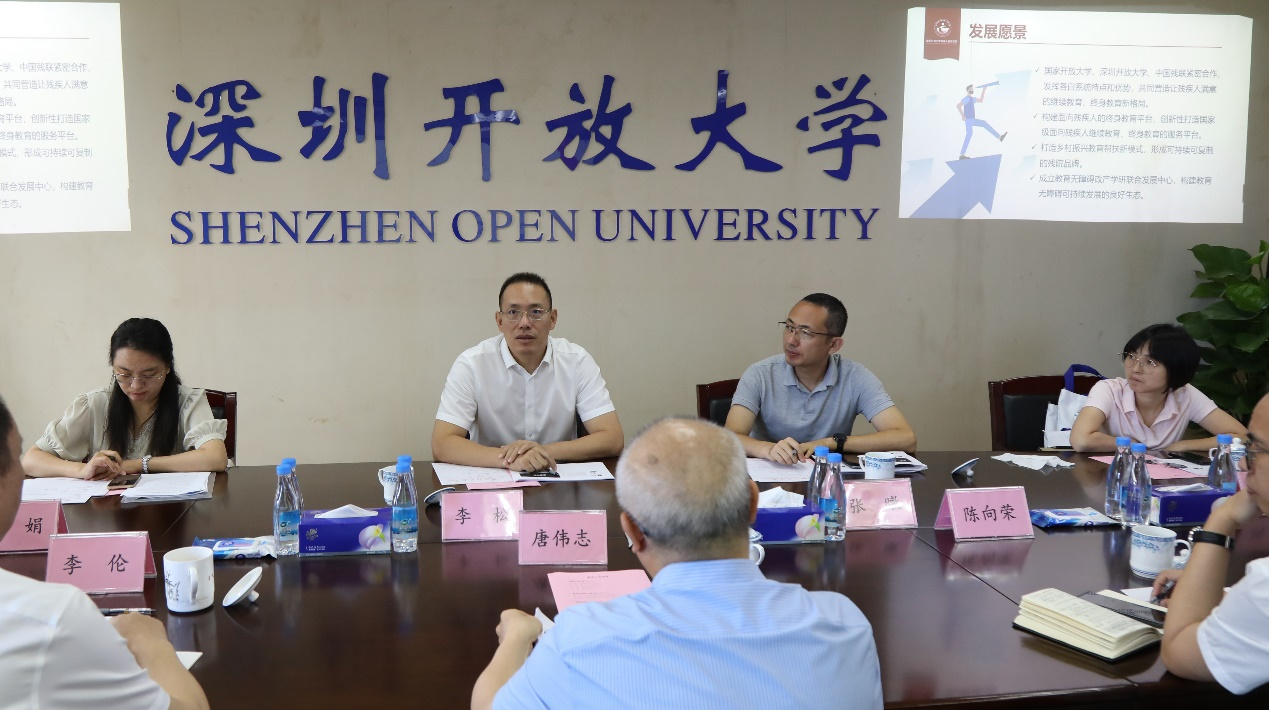 To rigorously implement the guiding principles set forth by the 20th CPC National Congress and to proactively fulfill the directives issued by the Party and the State concerning educational initiatives for the disabled, a delegation led by Li Song, a member of the Party Committee and vice president of the Open University of China (OUC), conducted field research at the School for the Disabled on 21 September 2023.
To rigorously implement the guiding principles set forth by the 20th CPC National Congress and to proactively fulfill the directives issued by the Party and the State concerning educational initiatives for the disabled, a delegation led by Li Song, a member of the Party Committee and vice president of the Open University of China (OUC), conducted field research at the School for the Disabled on 21 September 2023.
Joining the symposium for this investigative endeavour were Li Lun, a member of the Party group and vice president of the Shenzhen Disabled Persons' Federation, and Tang Weizhi, a member of the Party Committee and vice president of Shenzhen Open University.


Li Song asserts that education for individuals with disabilities constitutes a critical component of open education, a principle to which the OUC has consistently ascribed high importance. In the two decades since its inception, the School for the Disabled has been proactive in soliciting policy support, leveraging the distinct advantages of the OUC's open education infrastructure. Through these efforts, the institution has incrementally constructed a comprehensive distance education system for disabled individuals. This system has expanded opportunities for this demographic to access higher education and vocational training, thereby advancing educational equity. Moreover, the School for the Disabled has made significant contributions to the edification of a society committed to lifelong learning for all.
Li Song emphasised that since the convening of the 18th CPC National Congress, the CPC Central Committee, under the leadership of Comrade Xi Jinping, has accorded particular attention to the welfare of disabled persons. This was further highlighted during the 8th National Congress of the China Disabled Persons' Federation held on 18 September2023. The Congress explicitly articulated that Party committees and governmental bodies at all levels must operate under the robust guidance of the CPC Central Committee. Their objective should be to address pressing concerns affecting disabled persons, striving to meet their diverse needs across rehabilitation, education, employment, and cultural life. The overarching goal is to significantly ameliorate the health, educational attainment, and quality of life for disabled individuals. These directives impose elevated requisites on the OUC in its commitment to advancing educational initiatives for persons with disabilities.
Li Song emphasised that executing effective educational initiatives for the disabled represents an historic task, mandated by both the Party and the State to the OUC. This is also a significant mechanism for the OUC to operationalize the principle of "A Leading Country in Education: The OUC's Role." Since its inception, the School has achieved noteworthy milestones. However, the contemporary era presents us with evolving requirements. Consequently, the School should rigorously evaluate its prior experiences in educational administration, fully leverage the benefits conferred by the OUC system, and ceaselessly extend its service offerings. It must also enhance its overall capacity for school administration, perpetually create a barrier-free educational environment, and continue to develop robust learning resources and support services. These endeavours will make meaningful contributions to the establishment of a learning society and a nation committed to lifelong learning, while simultaneously advancing the OUC's overarching objectives in the educational sphere for the disabled.
The School was established in November 2002 and is headquartered at Shenzhen Open University. Currently, the School offers two undergraduate programmes and two junior college programmes, with a network of 30 tutorial centres spread across China. Since its inception, the School has enrolled a total of 20,899 students, produced 13,353 graduates, and cultivated numerous exemplary student representatives. These students, despite facing physical challenges, have strived for excellence and made notable achievements. Notable alumni include Dong Ming, Rong Jing, and Li Wenjun.
By OUC